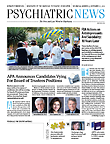As legal restrictions against the medical and recreational use of marijuana fall in some states, child health organizations are “profoundly concerned” that too little attention is being paid to the consequences of the potential increased availability of the drug to young people.
“[We] strongly believe that scientific and clinical evidence should be central to shaping policy decisions that affect public health,” said a joint statement by the American Academy of Child and Adolescent Psychiatry (AACAP) and the American Academy of Pediatrics (AAP). “In light of the currently available evidence, as advocates for child and adolescent health, we oppose marijuana legalization.”
The statement was triggered by a series of articles in the New York Times supporting legalization of marijuana, but was only the latest cautionary note from the organizations.
“There is honest debate among scientists about the health effects of marijuana, but we believe that the evidence is overwhelming that addiction and dependence are relatively minor problems, especially compared with alcohol and tobacco,” said the Times in a July 27 editorial.
In response, AACAP and AAP called for “accurate representation of the problems associated with marijuana use, especially in adolescence.” They noted the cognitive and psychiatric problems associated with marijuana use by some adolescents, including an increased risk for psychosis. Heavy use of cannabis in adolescence is associated with increased risk for continued use and for use of other drugs.
“We were concerned that a lot of the science and clinical knowledge about marijuana use was not being appropriately communicated as people were trying to assess the potential risks and benefits of policy changes,” said AACAP’s Kevin Gray, M.D., a cosigner of the statement along with Catherine Martin, M.D., of AACAP, and Sharon Levy, M.D., M.P.H., of AAP. Gray is an associate professor of psychiatry and behavioral sciences at the Medical University of South Carolina.
Legalized marijuana is not supposed to be sold to minors, but some leakage to underage consumers is likely, given the experience with tobacco, alcohol, and prescription opioids.
“Marijuana is illegal now, and we know adolescents report that it’s easy to obtain,” said Frances Levin, M.D., the Kennedy Leavy professor of psychiatry at Columbia University and a past-president of the American Academy of Addiction Psychiatry.
No Consensus Found Among Experts
“This is a complicated issue, and not even the professionals are in agreement,” said Levin, who is also chair of APA’s Council on Addiction Psychiatry, in an interview with Psychiatric News. “Marijuana is the most common drug, other than alcohol, that brings people into treatment. Perhaps 1 in 11 users develops a marijuana problem. That’s a lower rate than cocaine users, but there is a much broader user base out there.”
AACAP and AAP are not alone. In a recent position statement, APA’s Board of Trustees strongly urged the federal government to conduct monitoring with particular attention to the effects on children and adolescents. In 2013, APA said: “There is no current scientific evidence that marijuana is in any way beneficial for the treatment of any psychiatric disorder. In contrast, current evidence supports, at minimum, a strong association of cannabis use with the onset of psychiatric disorders. Adolescents are particularly vulnerable to harm, given the effects of cannabis on neurological development.”
Evidence of Harm Underestimated
Movements to legalize marijuana for “medicinal” or recreational use have eroded concern about risks, Gray told Psychiatric News.
“Our worry is that people are not aware of the inverse relationship between adolescent perception of harm and usage rates,” he said. “As perception of harm has declined, usage rates have gone up. Both are moving in the wrong direction.”
The statement also calls for more treatment opportunities for users.
“We need to understand the disorders associated with these substances rather than solely emphasize the criminal consequences, especially in young people where there’s a lot of potential trajectory change based on the consequences,” said Gray. “AACAP and AAP represent experts in the field of child and adolescent health, and we want to be part of the conversation.”
In any case, the natural experiment created by the changing legal landscape presents an opportunity to test the views of those on all sides of this issue.
“With the loosening up of the laws, there is a possibility that we may see an increase in rates of abuse and dependence among adolescents,” said Levin. “These measures need to be looked at to monitor public health and safety changes.” ■
The joint statement can be accessed
here. The
New York Times’ series on marijuana legalization is available
here.


